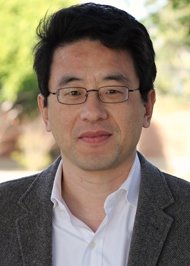Li Min
Biography
Li Min’s major field of research is the archaeology of prehistoric and Bronze Age China, focusing on state formation, social memory, storytelling, place-making, and religious and social responses to climatic change. He also studies the maritime archaeology of the Asiatic Trade in the Early Modern Era (13-17th centuries), using research on ceramic production and trade in coastal China and Southeast Asia to document the transformations in material culture brought by the inauguration of early global trade.
He teaches graduate seminars in archaeology theories and several undergraduate courses on anthropological archaeology and ancient civilizations of China. These classes are offered through Anthropology, Asian Languages and Cultures, and the Interdepartmental Program of Archaeology. He is also co-director of the Wen-Si River Basin archaeological survey project, a collaboration between UCLA and archaeologists in China.
His most recent book is Social Memory and State Formation in Early China, published by Cambridge University Press in 2018.
Research Interests
Social archaeology and cultural history of continental East Asia focusing on emergence early civilizations in Neolithic and Bronze Age China. Historical anthropology, material culture, and conceptions of the past in early modern China. Landscape archaeology, integrating systematic survey, analysis of archaeological ceramics, remote sensing imagery, traditional studies of stone inscriptions and numismatics
Publications
Social Memory and State Formation in Early China, Cambridge University Press, 2018.


